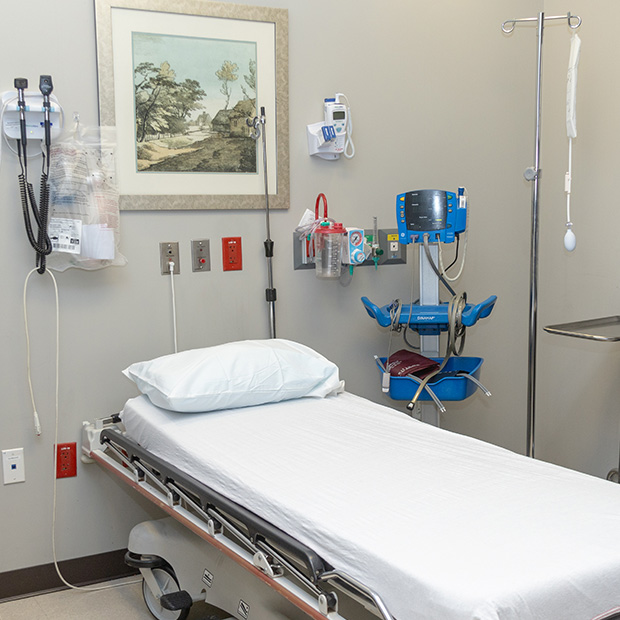
Emergency Cyclic Vomiting Syndrome Care in Dallas
Immediate 24-Hour Treatment for Severe Vomiting in Dallas
The main symptoms of cyclic vomiting syndrome are episodes of severe vomiting with no clear cause. The vomiting episodes are very similar or cyclical, meaning that they usually start at the same time of day and last for the same length of time, which can be several hours or several days. Excessive vomiting is not safe, so emergency medical care should be sought as soon as symptoms begin.
Advance ER has two emergency care centers in the Dallas area. Each clinic has highly trained staff and top-quality medical equipment to diagnose and treat cyclic vomiting syndrome. We offer 24/7/365 availability with no wait times at both clinics, so you can always come to Advance ER for help.
Find the Advance ER center nearest you by dialing (214) 494-8222 right now.
When to Seek Emergency Care for Cyclic Vomiting
Symptoms of cyclic vomiting syndrome tend to include:
- Vomiting for an extended period a few times a month.
- Intense nausea and sweating before a vomiting episode begins.
- Lingering abdominal pain and headaches.
- Lasting dizziness, nausea, or dry heaving.
- Diarrhea and indigestion between episodes.
You should seek emergency medical care for cyclic vomiting syndrome symptoms if you vomit more than once and do not have a chance to rest and rehydrate or if you vomit more than three times in an episode. If you notice blood in your vomit or stool before, during, or after an episode, then you should seek emergency care, too. Also, signs of dehydration – dry skin, infrequent urination, constant migraine, sunken cheeks, and strong exhaustion – could be serious after an episode of vomiting, so you should not delay and come to Advance ER right away.
How Cyclic Vomiting Syndrome Is Diagnosed
Medical science has not reached a universally accepted way to test for and diagnose cyclic vomiting syndrome. Vomiting can be brought upon by so many different health issues and stimuli that it is very difficult to pinpoint what is causing a patient’s cyclic vomiting. If your symptoms are unclear when you arrive at Advance ER, our treatment team may want to complete one or more diagnostic tests.
Three common diagnostic testing methods for possible cyclic vomiting syndrome symptoms are:
- Endoscopy
- Ultrasound
- CT scan
We can use the images found using these tests to look for blockages in your digestive tract, which could cause vomiting. Gastrointestinal (GI) tract blockages can be extremely dangerous, so we will want to look for those first. If no such blockage is found through imaging tests, then we can network with your primary care provider and recommend laboratory tests to look for metabolic issues that might be the cause.

-
 The Advance ER Team Providing Reliable Medical Care
The Advance ER Team Providing Reliable Medical Care -
 ER Insight Vital Knowledge for Life-Saving Moments
ER Insight Vital Knowledge for Life-Saving Moments -
 ER Knowledge Hub Your Source for Expertise on Health, Emergencies, and Beyond
ER Knowledge Hub Your Source for Expertise on Health, Emergencies, and Beyond
What Causes Cyclic Vomiting Syndrome?
Vomiting disorders like cyclic vomiting syndrome can be caused by a variety of reasons. In many cases, doctors cannot find the exact cause of a patient’s cyclic vomiting syndrome.
Known links – but not confirmed causes – of cyclic vomiting syndrome are:
- Overexertion
- Heatstroke
- Binge eating
- Allergic reactions to certain foods
- Excess caffeine or alcohol
- Anxiety and panic attacks
- Flu complications
- Overexcitement
Can Cyclic Vomiting Symptoms Be Prevented?
Once you are treated and stabilized at Advance ER, we will either recommend that you go to the hospital for more care or return home for rest. Either way, you will want to talk with your primary care provider soon about prevention methods. With the right care, you may be able to reduce the risk of future cyclic vomiting episodes.
Your doctor might recommend the following to prevent future cyclic vomiting episodes:
- Improved sleep schedule.
- Keeping track of and avoiding foods that seem to cause an episode.
- Eating more but smaller meals throughout the day.
- Therapy for emotional complications or anxiety.



[8].2112210947272.png)